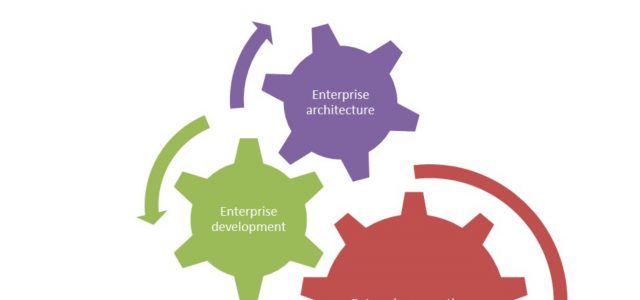The role of data in organizations is no longer a myth or a mystery that is difficult to comprehend. The transformation to the workplace of tomorrow is underway, and it is time that all organizations catch up and implement the necessary changes to their culture.
While in the past leaders were praised for their ability to display gut instincts, this quality is no more required in the contemporary work setting. With more data driving operations in a business than ever before, it wouldn’t be wrong to say that the leaders of today need to cultivate a culture that is data-driven, instead of believing in their gut instincts.
The Need for Infrastructure
When cars and other vehicles started rolling out back in the 20th Century, it was imperative that the infrastructure be provided to facilitate the move towards vehicular transportation. This infrastructure consisted of roads, filling stations, and maintenance checkpoints. It was only after the necessary infrastructure was ensured that we could see cars going around on a more consistent basis. Thus, for data to be implemented in an organization, there needs to be proper infrastructure and most importantly, a culture that is driven by the need for data.
The cultural change towards a data-driven model would not only facilitate the data transformation that we expect to phase out in the future, but will also ensure that organizations have the infrastructure necessary to delivery and access adequate data and make accurate analytics.
By implementing a data-driven culture in your organization, you would surely not be the first organizational CEO to walk down this road. Numerous organizations have gone down this path and have experienced profound success in getting the results they desired. A recent report by Aberdeen has mentioned that organizations which have implemented a data-driven culture have witnessed a seven percent annual increase in the revenues they make in a year.
This increase in revenue has been achieved through the increase in efficiency when it comes to the operational activities of the business. 83 percent of the businesses that have made the transition to a data-driven culture experienced an improvement in the time taken for one operational cycle to complete. Moreover, the improvement in time taken per cycle was coupled with the fact that businesses that have implemented the data-driven model also witnessed a reduction of 12 percent in organizational costs that were going down as a waste before the transition.
Implementing a Data-driven Culture
With the basic benefits of making the transition towards a data-driven culture out of the way, we will now take a look at some of the steps an organization should take to ensure a culture that runs on data.
- Establishing a Clear Vision: To successfully incorporate data into the DNA of any organization, it is necessary that you develop a vision that points towards the path needed for success on this front.
- Ensure Easy and Secure Access: The whole point of the implementation of a data-driven mindset in an organization is that it is easily accessed by all employees and creates a change across the organization.
- Keep Your Data Clean: The point with data is that it needs to be regularly maintained to ensure that data remains clean and crystal clear. Data analysts need to know exactly what constitutes a good data-set.
- Create Agile Teams: It is people not tools who dictate the culture within an organization. Thus, to create a data-driven culture, it is necessary that you make and regulate teams.
- Develop Rewards: Rather than just inputting data into the organization, it is necessary that you instil competition as well to get the desired results. A reward mechanism would motivate teams and will help them work better.
Article by channel:
Everything you need to know about Digital Transformation
The best articles, news and events direct to your inbox







